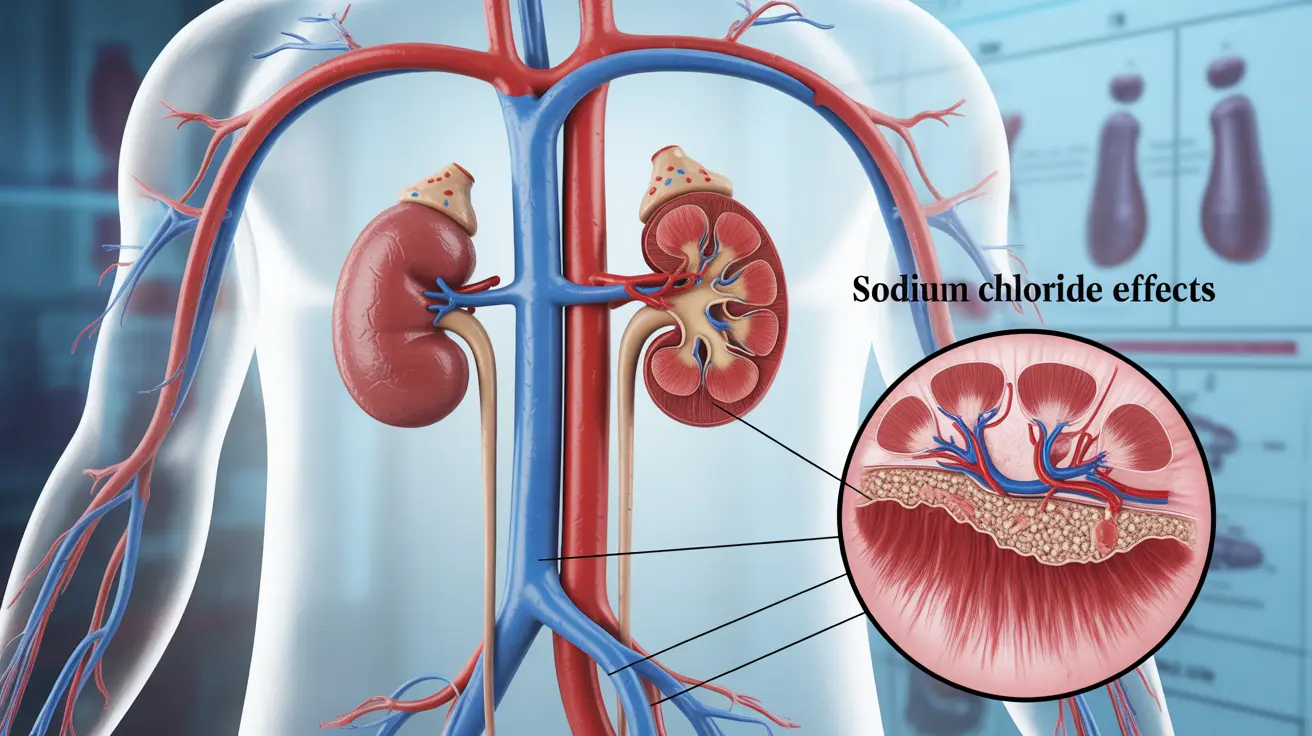Sodium chloride, commonly known as table salt, plays a vital role in human health but requires careful consideration of its intake and medical applications. This compound is essential for maintaining proper bodily functions, yet its consumption must be balanced to prevent potential health risks. Understanding the impact of sodium chloride on health and its various medical uses can help individuals make informed decisions about their salt intake and treatment options.
Health Impact of Sodium Chloride
The relationship between sodium chloride and human health is complex and multifaceted. While this compound is crucial for nerve function, fluid balance, and muscle contractions, excessive intake can lead to several health concerns.
Cardiovascular Effects
High sodium chloride consumption primarily affects the cardiovascular system by increasing blood volume and blood pressure. This can lead to hypertension, which may increase the risk of heart disease and stroke. The heart must work harder to pump blood throughout the body when sodium levels are elevated.
Kidney Function
The kidneys play a crucial role in managing sodium chloride levels in the body. Excessive salt intake can strain these organs, potentially leading to kidney disease or exacerbating existing kidney problems. Individuals with compromised kidney function need to be particularly mindful of their sodium chloride intake.
Recommended Daily Intake Guidelines
Health organizations have established specific guidelines for sodium chloride consumption to promote optimal health. The average adult should aim to consume no more than 2,300 mg of sodium (approximately one teaspoon of table salt) per day. However, certain populations, including those with hypertension or heart conditions, may need to restrict their intake further to 1,500 mg daily.
Medical Applications of Sodium Chloride
Beyond its role in food seasoning, sodium chloride serves several important medical purposes:
- Intravenous fluid therapy
- Wound cleaning and sterilization
- Nasal irrigation
- Electrolyte replacement
- Contact lens solution
Medical-grade sodium chloride solutions are carefully formulated to match the body's natural salt concentration, making them safe and effective for various therapeutic applications.
Strategies for Reducing Sodium Chloride Intake
Lowering sodium chloride consumption requires conscious effort and lifestyle modifications. Here are effective approaches to reduce salt intake:
- Choose fresh fruits and vegetables over processed foods
- Read nutrition labels carefully
- Use herbs and spices for flavoring instead of salt
- Cook meals at home to control salt content
- Rinse canned foods before use
Medical Treatment Considerations
While sodium chloride is essential in many medical treatments, healthcare providers must carefully monitor its use to prevent complications. Proper dosing and administration are crucial, particularly in intravenous therapy and other medical applications.
Frequently Asked Questions
- What health problems can high sodium chloride (table salt) intake cause?
High sodium chloride intake can lead to hypertension, heart disease, stroke, kidney problems, and fluid retention. It may also increase the risk of osteoporosis and stomach cancer in some individuals.
- How much sodium chloride should adults consume daily for good health?
Adults should limit sodium chloride intake to no more than 2,300 mg of sodium per day. Those with certain health conditions may need to restrict intake to 1,500 mg daily, as recommended by their healthcare provider.
- What are the medical uses of sodium chloride beyond seasoning food?
Sodium chloride is used in intravenous fluids, wound cleaning, nasal irrigation, electrolyte replacement therapy, and contact lens solutions. It's essential in medical settings for maintaining proper fluid and electrolyte balance.
- How can I reduce my sodium chloride intake to lower blood pressure risks?
Reduce sodium chloride intake by choosing fresh foods over processed options, reading nutrition labels, using herbs and spices instead of salt, cooking at home more often, and limiting restaurant meals.
- What are the side effects or risks of using sodium chloride in medical treatments?
Potential risks include fluid overload, electrolyte imbalances, and high blood pressure if not properly administered. People with certain health conditions may need careful monitoring when receiving sodium chloride-based treatments.




